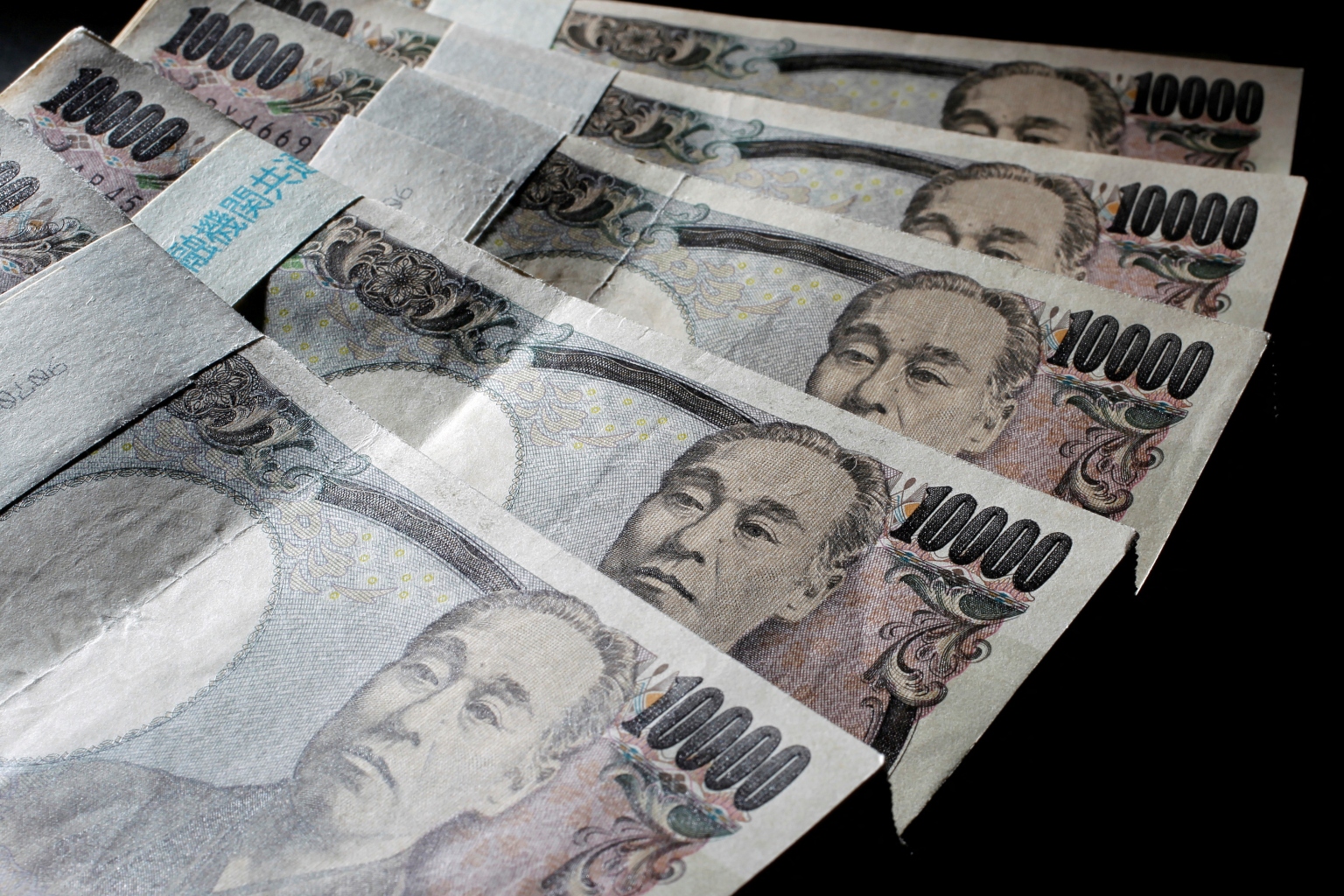Yen set for worst year as traders eye intervention; US dollar continues to climb
Sign up now: Get ST's newsletters delivered to your inbox

The yen has slumped more than 19 per cent this year, edging past its previous worst annual drawdown in 1979.
PHOTO: REUTERS
TOKYO - The yen has slumped to a level that puts it on track for its worst year on record, putting traders on alert for at least more verbal intervention from Japanese officials.
The currency has slumped more than 19 per cent this year and edged past its previous worst annual drawdown in 1979. The renewed sell-off in Treasuries this month has widened the yield gap between the US and Japan, driving up the dollar and pushing the yen to a 24-year low.
Dollar-yen surged past the 143 level for the first time since 1998 on Tuesday, a move that will ramp up pressure on Bank of Japan governor Haruhiko Kuroda's defiance of a global shift towards rate hikes and the strength of Prime Minister Fumio Kishida's support for his stance.
It traded around the 143.03 level in early trading on Wednesday.
The yen has been slipping against the Singapore dollar as well, trading at 101.78 per Singdollar on Wednesday morning.
In June, officials said they will take action if necessary, without specifying what that will be, after a three-party meeting held between the Ministry of Finance, the central bank and the Financial Services Agency.
Japan last intervened to prop up the currency in 1998, at around the same time much of Asia was being buffeted by a regional financial crisis.
Developed economies are also taking a hit from the dollar's appreciation to multi-decade highs in ways that were once more familiar to their emerging market peers.
Fuelled by the US Federal Reserve's most aggressive tightening cycle in more than a generation, the stronger greenback is pushing rival currencies lower, driving up the cost of imported goods, constricting financial conditions and feeding inflation in other economies.
"A stronger dollar generally comes with higher short- and long-term interest rates in the US, or with stress in global markets and a flight to the dollar's perceived safety," said Dr Maurice Obstfeld, a senior fellow at the Peterson Institute for International Economics. "Those tighter financial conditions cause developed economies everywhere to slow."
The Fed's trade-weighted dollar index versus advanced economies has soared 10 per cent this year to the strongest since 2002, while the emerging market (EM) measure is up a more modest 3.7 per cent and remains well below its peak from the 2020 Covid-19 pandemic.
While some of the world's worst performing currencies this year are from developing economies such as Sri Lanka, the outperformance of commodity-backed currencies such as Brazil's real and Russia's ruble have bolstered the EM grouping.
"Just by raising policy rates, other countries are unlikely to stop the depreciation of their currencies," said economist Sayuri Shirai, a former Bank of Japan board member who is now a Keio University professor.
That is because "dollar strength not only reflects an expectation about the federal funds rate hikes this year - and thus higher demand for US fixed-income assets - but also reflects global recessionary risks arising from the greater than previously expected policy rate hikes around the world", she added.
Since it became clear the Fed would switch to tightening mode about a year ago, developed market currencies have struggled at least as much as their emerging nation counterparts.
Across 31 major exchange rates tracked by Bloomberg, four developed ones were among the 10 biggest losers and only one, the Canadian dollar, among the 10 best performers.
For central banks such as the European Central Bank, whose currency is the most traded with the dollar, the current energy crisis has provided its policymakers with a particularly sharp reminder of the euro's role as a channel for inflation - not least because of the greenback's use in denominating global commodity prices.
The euro sank to US$0.9864 against the US dollar on Tuesday, a level unseen since December 2002.
"The issue will become acute for developed economy policymakers if the dollar keeps overshooting," said Bank of Singapore chief economist Mansoor Mohi-uddin. "So central banks keep increasing interest rates this year even if domestic asset markets are plunging and growth is faltering." BLOOMBERG


